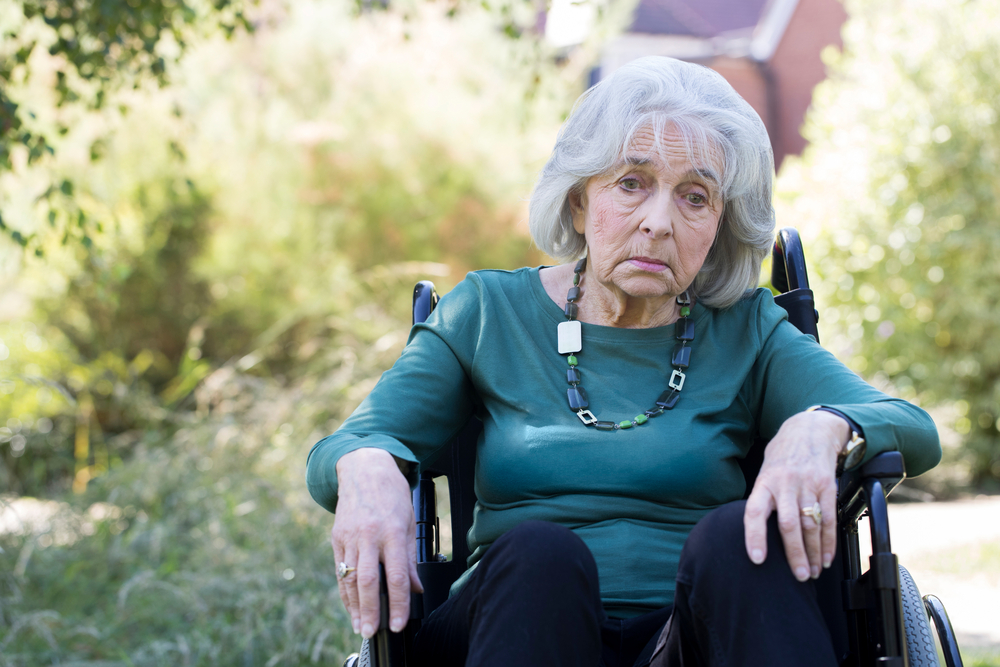 When you entrust your loved one into the care of a nursing home or similar care facility, you entrust that they will not only be treated well, but that they will receive an even higher level of care than you could provide yourself. This is largely why families choose to place their senior loved one into a care facility in the first place—because you want them to receive better care. So when that trust is broken and you find that your loved one is being neglected, it’s natural to want to seek justice for the neglect. However, proving nursing home neglect is much more difficult than it might seem, and can even be harder than providing nursing home abuse. Keep reading to find out why.
When you entrust your loved one into the care of a nursing home or similar care facility, you entrust that they will not only be treated well, but that they will receive an even higher level of care than you could provide yourself. This is largely why families choose to place their senior loved one into a care facility in the first place—because you want them to receive better care. So when that trust is broken and you find that your loved one is being neglected, it’s natural to want to seek justice for the neglect. However, proving nursing home neglect is much more difficult than it might seem, and can even be harder than providing nursing home abuse. Keep reading to find out why.
Natural Decline of Health
One of the biggest difficulties in proving neglect is that many of the symptoms of neglect can often be attributed to a natural decline in health associated with age. As people age, they may experience weight loss, loss of muscle tone, a higher risk of respiratory illness, and other health complications. However, these can also be signs of neglect, so differentiating between what is naturally occurring and what is happening due to the nursing home’s insufficient care can be difficult—and proving it in a court can be even harder.
In cases of nursing home abuse, the signs are much easier to separate from aging. Unexplained injury, fear of the facility’s staff, mood and behavioral changes, and other such symptoms are much less likely to occur naturally.
Unpreventable Accidents
While you should expect a high level of care and attentiveness from any senior care facility, some allowances must be made for unpreventable accidents. Elderly individuals are often prone to falls, for example, and not all of these can be prevented, even with very attentive staff. But falls can also occur when staff members should have been taking better care of your loved one. For instance, if they instructed your loved one to go downstairs on their own, rather than assisting them, this could be viewed as neglect. On the other hand, if they were trying to help your loved one down the stairs, and your loved one still slipped and fell, potentially even pulling the staff member down with them, then the staff member was clearly doing everything within their power to prevent the accident.
Providing exactly what happened when accidents like these happen can be exceptionally difficult. Your loved one will need to be able to provide clear details of the incident and what actions the staff did or did not take leading up to the accident. You will also need witnesses to the incident to corroborate their version of events. Finding the evidence you need to prove that accidents like these only happened due to staff neglect can be exceptionally difficult.
Facility Denial
Facilities are often more likely to deny cases of neglect than they are cases of abuse. While this might seem counterintuitive, it’s worth noting that neglect cases are often a more widespread problem within a facility. While individual caregivers may be responsible for abuse, neglect typically is due to improper training, unsafe facilities, and generally neglectful practices within the facility itself. This means that a neglect case is more likely to be filed against the facility as a whole, rather than an abuse case against a single staff member.
Having a facility and their legal team firmly denying responsibility for your loved one’s injuries or illness is obviously much more difficult than when the facility is aiding you in proving a single staff member’s responsibility for abuse.
Proving Liability
All of the above factors can add up to a difficult time proving the facility’s liability. One method we can use to aid in this endeavor is to examine Medicare regulations, if the facility accepts Medicare as a form of payment. All care facilities that accept Medicare must abide by regulations, such as providing adequate access to mobility devices to help prevent falls. If we can prove that the facility does not meet Medicare regulations in any way, a civil suit is much more likely to prove successful.
If you believe your loved one’s nursing home or care facility is neglecting them in some way, contact The Harr Law Firm today. We’ll help you through building your case and filing a lawsuit with a high chance of success. Call now to schedule your consultation with one